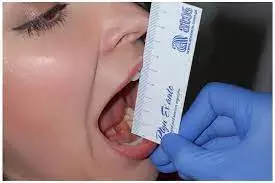- Home
- Medical news & Guidelines
- Anesthesiology
- Cardiology and CTVS
- Critical Care
- Dentistry
- Dermatology
- Diabetes and Endocrinology
- ENT
- Gastroenterology
- Medicine
- Nephrology
- Neurology
- Obstretics-Gynaecology
- Oncology
- Ophthalmology
- Orthopaedics
- Pediatrics-Neonatology
- Psychiatry
- Pulmonology
- Radiology
- Surgery
- Urology
- Laboratory Medicine
- Diet
- Nursing
- Paramedical
- Physiotherapy
- Health news
- Fact Check
- Bone Health Fact Check
- Brain Health Fact Check
- Cancer Related Fact Check
- Child Care Fact Check
- Dental and oral health fact check
- Diabetes and metabolic health fact check
- Diet and Nutrition Fact Check
- Eye and ENT Care Fact Check
- Fitness fact check
- Gut health fact check
- Heart health fact check
- Kidney health fact check
- Medical education fact check
- Men's health fact check
- Respiratory fact check
- Skin and hair care fact check
- Vaccine and Immunization fact check
- Women's health fact check
- AYUSH
- State News
- Andaman and Nicobar Islands
- Andhra Pradesh
- Arunachal Pradesh
- Assam
- Bihar
- Chandigarh
- Chattisgarh
- Dadra and Nagar Haveli
- Daman and Diu
- Delhi
- Goa
- Gujarat
- Haryana
- Himachal Pradesh
- Jammu & Kashmir
- Jharkhand
- Karnataka
- Kerala
- Ladakh
- Lakshadweep
- Madhya Pradesh
- Maharashtra
- Manipur
- Meghalaya
- Mizoram
- Nagaland
- Odisha
- Puducherry
- Punjab
- Rajasthan
- Sikkim
- Tamil Nadu
- Telangana
- Tripura
- Uttar Pradesh
- Uttrakhand
- West Bengal
- Medical Education
- Industry
Temporomandibular disorders tied to jaw functional limitation and psychologic distress in patients undergoing orthodontic treatment

Temporomandibular disorders associated with jaw functional limitation and psychologic distress in patients undergoing orthodontic treatment suggests a new study published in the Journal of Oral Rehabilitation
Some orthodontic patients are associated with temporomandibular joint disorders (TMDs), and the differences between jaw function and psychological states in orthodontic patients with different types of TMDs remain unknown.
This cross-sectional study aimed to investigate the prevalence of different types of TMDs in orthodontic patients and to evaluate the relationship between different types of TMDs and jaw functional limitation and psychological distress in orthodontic patients.
A questionnaire was sent to patients willing to participate in this survey, which included questions about the demographic characteristics of the participants, the five TMD symptoms (5Ts) of the Diagnostic Criteria for TMDs, the Jaw Functional Limitation Scale-8 (JFLS-8) and the Patient Health Questionnaire for Depression and Anxiety (PHQ-4). The subjects were divided into three groups: painful TMDs (PT), non-painful TMDs (NPT), and TMD-free according to whether they had TMDs and its subtypes.
Results
A total of 670 valid questionnaires were collected from 182 males and 488 females. The prevalence of TMDs was 35.4%, of which the prevalence of PT was 11.8% and the prevalence of NPT was 23.6%. The median JLFS-8 score of TMD patients was significantly higher than TMD-free, and PT patients were significantly higher than NPT (p = .026). After adjusting for confounding factors, the jaw function and psychological states of PT patients and NPT patients were worse than those of the TMD-free group.
Among the orthodontic patients surveyed, more than one-third had TMDs and the prevalence of PT was lower than NPT. Having TMDs is associated with more severe jaw functional limitation, and PT patients were more serious than NPT patients. At the same time, the psychological states of TMDs patients were also worse.
Reference:
Dan, R, Li, J, Xie, T, et al. Impact of different types of temporomandibular disorders on jaw functional limitation and psychological distress in orthodontic patients. J Oral Rehabil. 2023; 00: 1- 11. doi:10.1111/joor.13463
Keywords:
Temporomandibular, disorders, associated, jaw, functional, limitation, psychologic, distress, patients, undergoing, orthodontic, treatment,Journal of Oral Rehabilitation
Dr. Shravani Dali has completed her BDS from Pravara institute of medical sciences, loni. Following which she extensively worked in the healthcare sector for 2+ years. She has been actively involved in writing blogs in field of health and wellness. Currently she is pursuing her Masters of public health-health administration from Tata institute of social sciences. She can be contacted at editorial@medicaldialogues.in.
Dr Kamal Kant Kohli-MBBS, DTCD- a chest specialist with more than 30 years of practice and a flair for writing clinical articles, Dr Kamal Kant Kohli joined Medical Dialogues as a Chief Editor of Medical News. Besides writing articles, as an editor, he proofreads and verifies all the medical content published on Medical Dialogues including those coming from journals, studies,medical conferences,guidelines etc. Email: drkohli@medicaldialogues.in. Contact no. 011-43720751


